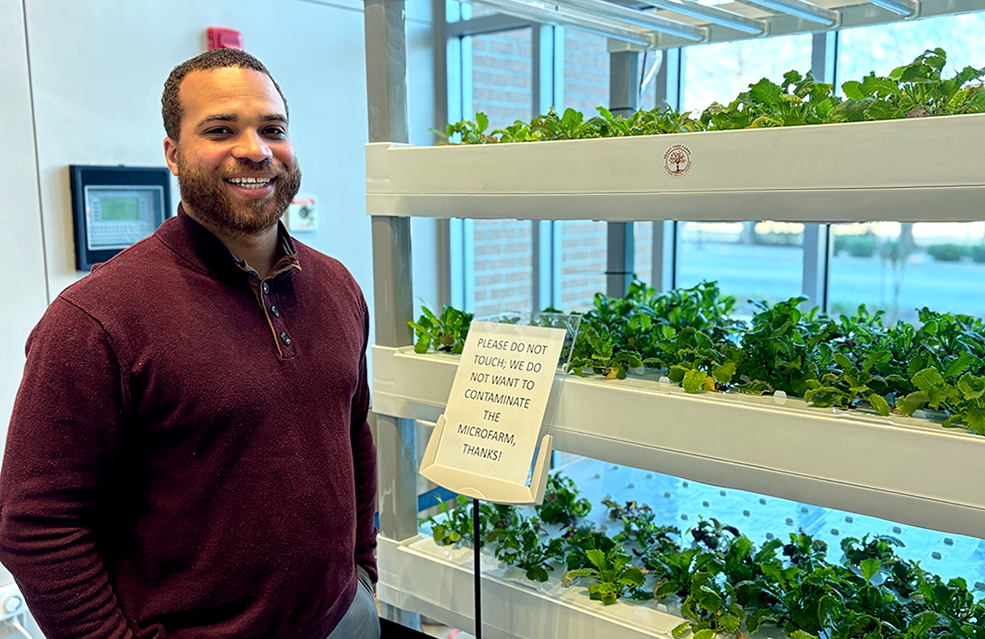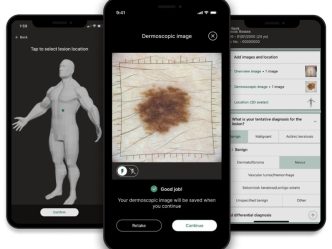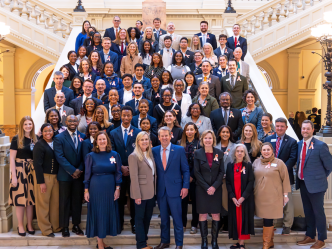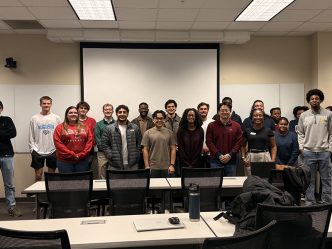Walton Way in Augusta has many fast-food options, but you will be hard-pressed to find an actual grocery store. The nearest ones are in North Augusta or along Washington or Wrightsboro roads, which are easily 10 minutes away by car and are still swamped by fast-food establishments at every turn.
This is what researchers call a food swamp, an area where unhealthy food options vastly outweigh the number of healthy food options. But, what’s special about Augusta is that some neighborhoods in the centralized area could also be considered food deserts, or urban areas where much of the population lives at or below the poverty line (the poverty rate is considered high in Augusta at 21%), and one in three residents live more than a mile away from the nearest grocery store.
Malcolm Bevel, PhD, a researcher at the Georgia Cancer Center and an assistant professor at Augusta University’s Medical College of Georgia, has made it his current mission to fight back against social determinants of health in the CSRA and give the community the boost it needs to overcome this predicament.
“I look at how social determinants of health play a role in obesity and obesity-related cancers, and I want to focus on the food environment because obviously obesity is an epidemic,” he said. “When you’re creating these environments where people don’t really have much of a choice in terms of what they would like to eat, and what they are eating is contributing to the tumor environment, then that becomes a problem.”
“The hypothesis is that eating these fast-food types on a consistent basis is likely to increase your cancer risk.”
Malcolm Bevel, PhD
The science behind food and obesity-related illnesses
While being overweight and obese are related, the two aren’t the same. Overweight is having excess fat deposits, whereas obesity is a chronic disease of having excess fat deposits that can impair health. According to the World Health Organization, obesity can lead to a slew of medical issues, such as the increased risk of type 2 diabetes, heart disease, certain cancers and impaired bone health and reproduction.
“Obesity is a low-level state of chronic inflammation processed through the adipose tissue within one’s cells, especially in organ systems like your liver and your thyroid and other diseases, which ironically, are two of the 13 obesity-related cancers,” Bevel said.
WHO claims that, since 1990, worldwide adult obesity has more than doubled, whereas worldwide adolescent obesity has quadrupled. According to the Centers for Disease Control and Prevention, more than two in five adults in the United States are obese.
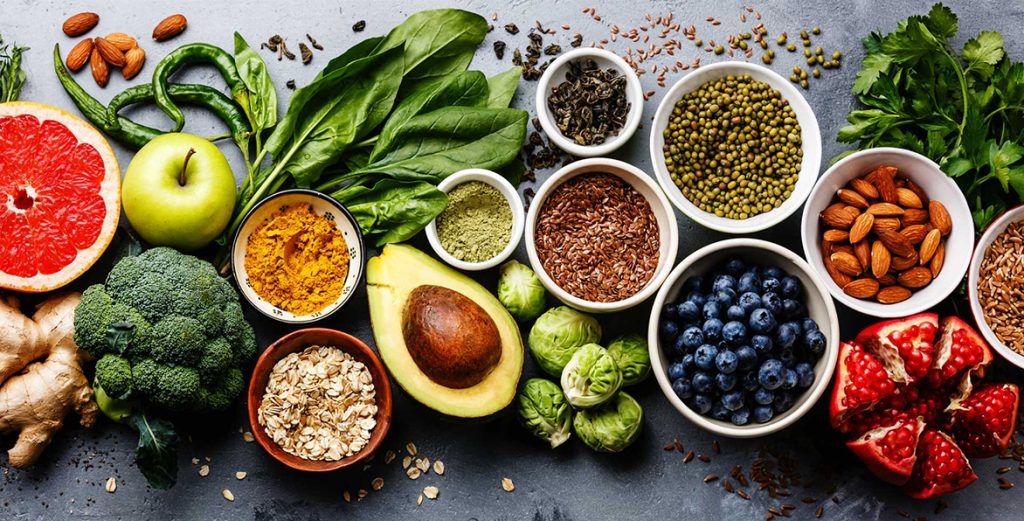
While no age group or sub-population is safe from obesity, it does tend to impact certain groups more than others; the CDC claims that non-Hispanic Black adults have the highest obesity prevalence.
But what’s causing this uptick in the disease? Bevel and other world-renowned health organizations believe diet is the main cause of the problem.
“There’s a strong correlation between obesity and cancer, and consuming more fast foods and unhealthy food options, pro-inflammatory food options contribute to the obesity environment. So the hypothesis is that eating these fast-food types on a consistent basis is likely to increase your cancer risk,” Bevel explained. “And obviously, if you’re living in these areas, those are the options that you have to go with regarding the lack of choices.”
Bevel recently presented some of his findings at the 2024 San Antonio Breast Cancer Symposium.
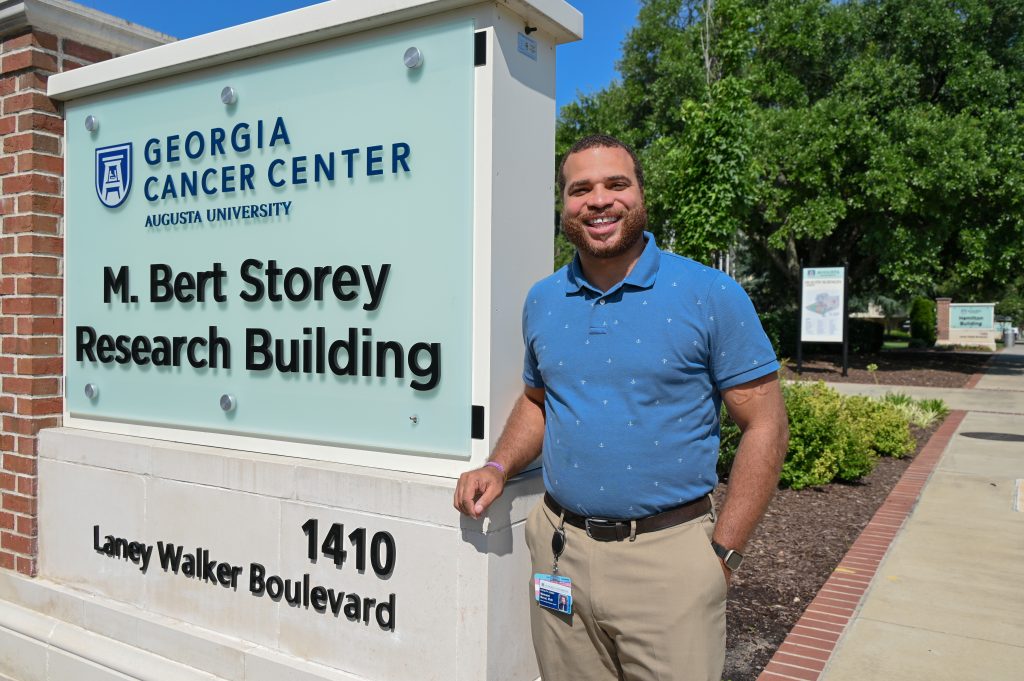
“We took Georgia Cancer Center data, and we combined that data with our master data set of the food environment, and we found that breast cancer patients who lived in food swamps had an over two-fold increased risk of dying from breast cancer if they lived in these food environments versus women who did not,” he said. “Even though our sample size wasn’t that large, it’s still a story that needs to be told in terms of the food environment-cancer outcome relationship.”
Even if someone is willing to drive out of the way to go to a grocery store with healthier food options, they’ll notice a significant price increase compared to ultra-processed foods you would find at a fast-food restaurant or a convenience store. But Bevel has good reasoning why people should spend the extra buck.
“It’s about empowering the people and educating them about their options. If you have the options, yes, it does look unaffordable right now, but think about the long term and think about your long-term health, and then that’ll put it into a better perspective,” he said. “Wouldn’t you want to pay for a bagged salad or some nice fresh produce up front, so then you don’t have to get on diabetic medication and hypertension medication, especially if you don’t have health insurance, that’s going to cost hundreds and thousands of dollars down the line?”
A 2023 CDC map showing obesity prevalence for each state in the U.S. lists Georgia as having a 35% obesity rate, with non-Hispanic Black adults in Georgia having a 43.8% obesity rate. While statistics regarding obesity in the greater Augusta area aren’t readily available, it’s important to note that these findings relate to our community in more ways than one.
To truly make an impact and help Augusta become healthier, Bevel realized a few things: He couldn’t do it alone; it’s not a one-solution-fits-all approach; and he would need to come up with tangible and monetary ways to create change.
So he developed a two-fold plan that incorporates healthier food options for our community and beyond.
“This is one of the emerging and most innovative ways of introducing your community to agriculture.”
Dan Scott, executive director and co-founder of Studio Farmer Inc.
GCC rooftop terrace
The rooftop terrace of the Georgia Cancer Center’s Outpatient Services building was in need of an extreme makeover, to say the least.
Large cement flower planters were cracked and crumbling, lifeless vines were hanging from the trellises and old wooden furniture meant for patients to enjoy had seen better days.
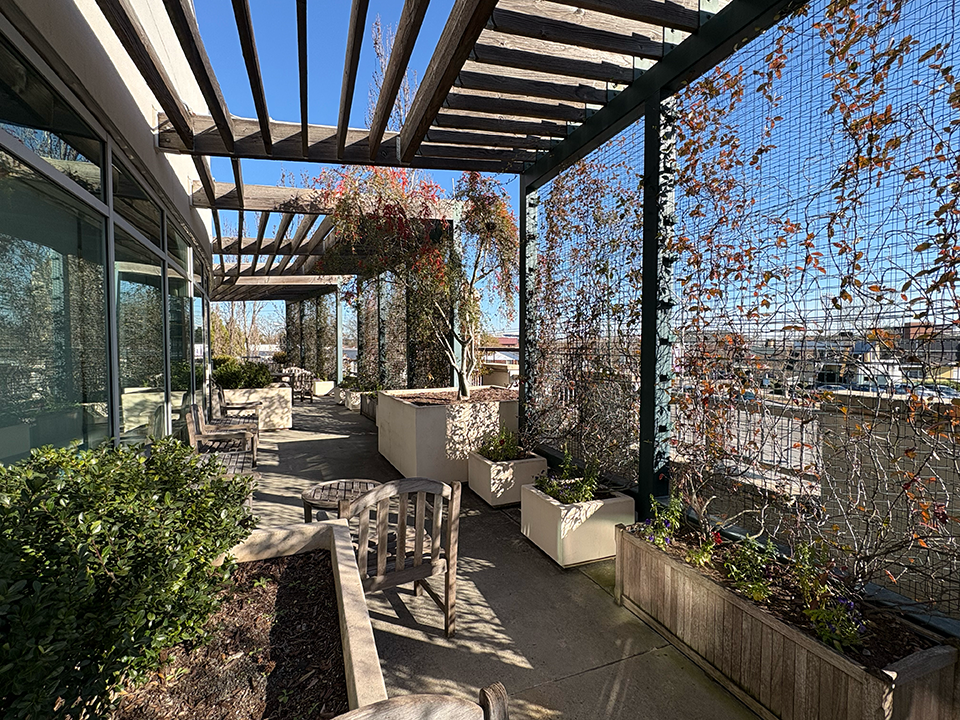
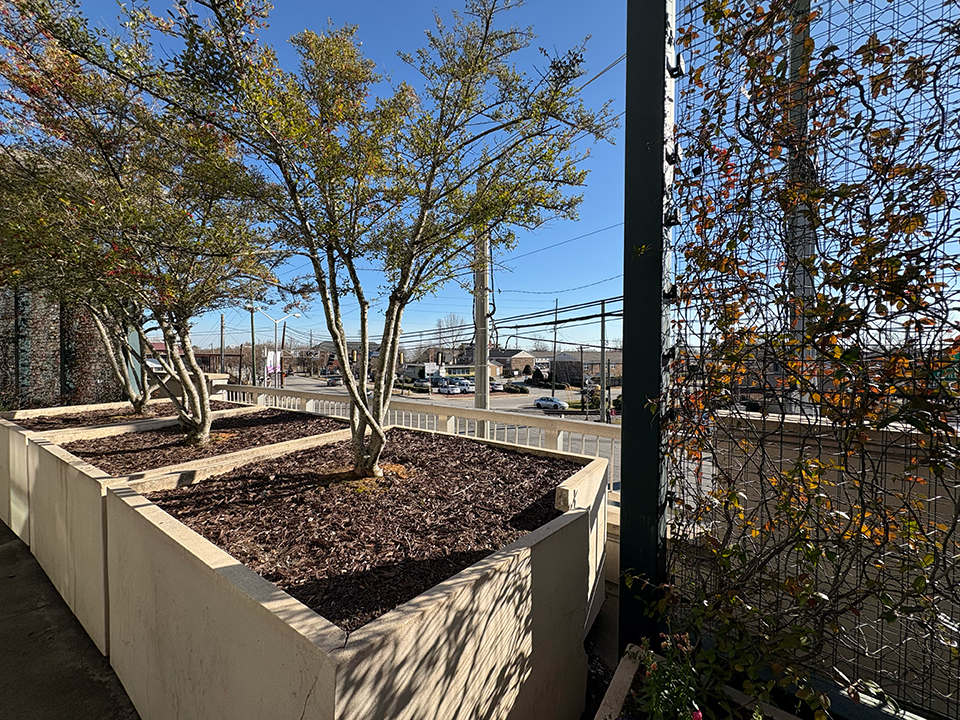
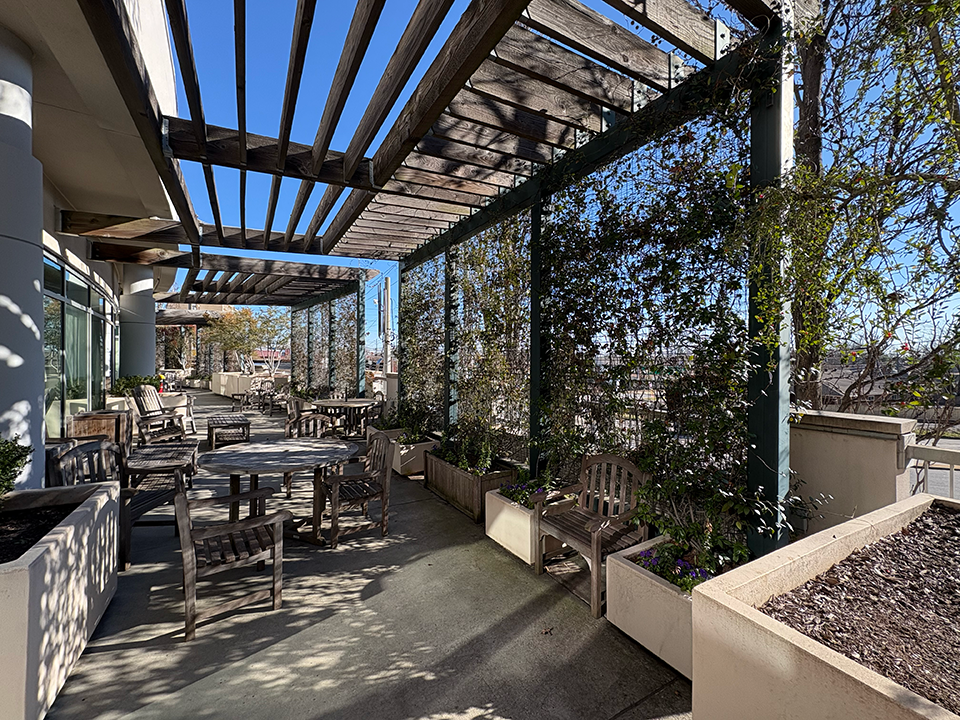
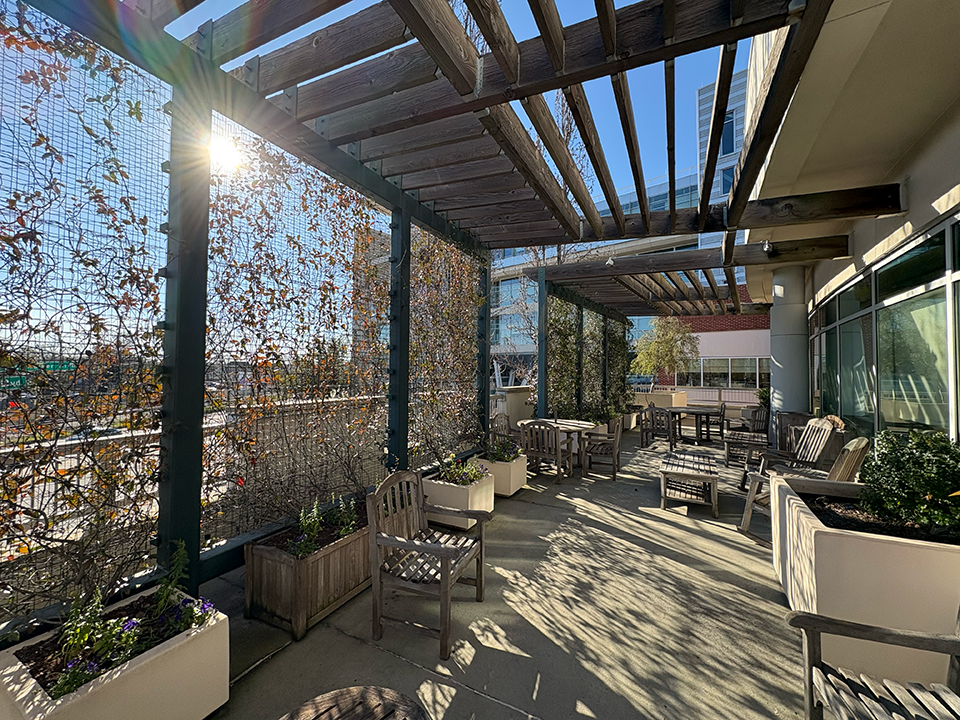
But Bevel had a vision for the semicircle-shaped garden overlooking the intersection of Laney-Walker and R.A. Dent boulevards. Thanks to generous donations to GCC’s Unite in the Fight Against Cancer grant funding stream and the approval of GCC Director Jorge Cortes, MD, Bevel has been able to slowly bring that vision to life.
“There are trellises, there are large and small and medium planters that we plan on using aeroponic tower gardens to grow some healthy produce and give it away as a part of a community outreach component at the Georgia Cancer Center, approved by Dr. Cortes,” Bevel said. “And what we would like to do is grow produce and see how our cancer patients like that.”
Since Bevel came to GCC in 2021, Cortes has shown support for the endeavors and projects he wants to take on to bolster community health. Having a vast background in cancer treatment and studies himself, Cortes recognizes the importance of mitigating the problem at the source.
“The impact that nutrition has on the risk of developing cancer is underappreciated. Promoting healthy eating habits is an important element in decreasing the risk of developing many cancers,” he said. “The work Dr. Bevel is doing not only provides information to the community about this risk but directly addresses a need and provides resources to promote healthy eating habits.”
The demolition process is still underway, but the plan is to install new furniture and wind chimes in the garden and plant produce like tomatoes, muscadines, grapes, broccoli, broccolini, bok choy and fresh herbs and spices during the spring and summer months.
To reduce as much waste as possible, Bevel and a team with the University of Georgia ran tests on the soil and plant life that was previously on the terrace and found that it was still good, so they’ll be reusing it for the raised garden beds.
“And then we’re considering doing small planters for some herbs, so people can take those home, and they can start growing in their own areas,” Bevel said. “A lot of people may not have yard space and may be living in apartments, especially a lot of our cancer patients, and so we want to give them different ways to grow their own produce, so they can save money and still eat healthier.”
To accomplish this, Bevel has partnered with Ebony Tree Farms and Studio Farmer Inc., which will be providing the seeds and materials for other projects and will help renovate the terrace and train GCC patients and volunteers on gardening.
“We basically help farmers more so with their workforce development initiatives. Labor is one of the biggest issues when it comes to agriculture and farming,” said Dan Scott, the executive director and co-founder of Studio Farmer Inc.
Studio Farmer is a veteran-led, minority-run nonprofit focused on assisting farmers, landowners and individuals with conservation practices on their properties.
Scott first met Bevel at a qualitative research session that Bevel organized for community gardening. Bevel mentioned how he wanted to revamp the GCC rooftop garden, and the rest is history.
“This is one of the emerging and most innovative ways of introducing your community to agriculture,” Scott said. “Plus, we’re doing it for a good cause – fighting cancer. It’s almost like a healing type of aspect going on, as far as utilizing the soil to grow in gardens in the communities, upcycling and repurposing the old terrace furniture at affiliate grower sites and utilizing the labor from the community to come get involved. It’s beautiful.”
“It’s all interconnected, and that nexus point is food.”
Anna Giffin, co-owner of Ebony Tree Farms
Hydroponic vertical gardens
The counterpart of Bevel’s plan is incorporating hydroponic vertical gardens into the community to grow produce in a clean, sustainable way.
A hydroponic garden, or a micro-farm, is a way to grow plants without soil in a controlled indoor environment. The plants get their nutrients and minerals through water circulating from a large tank at the base of the tower.
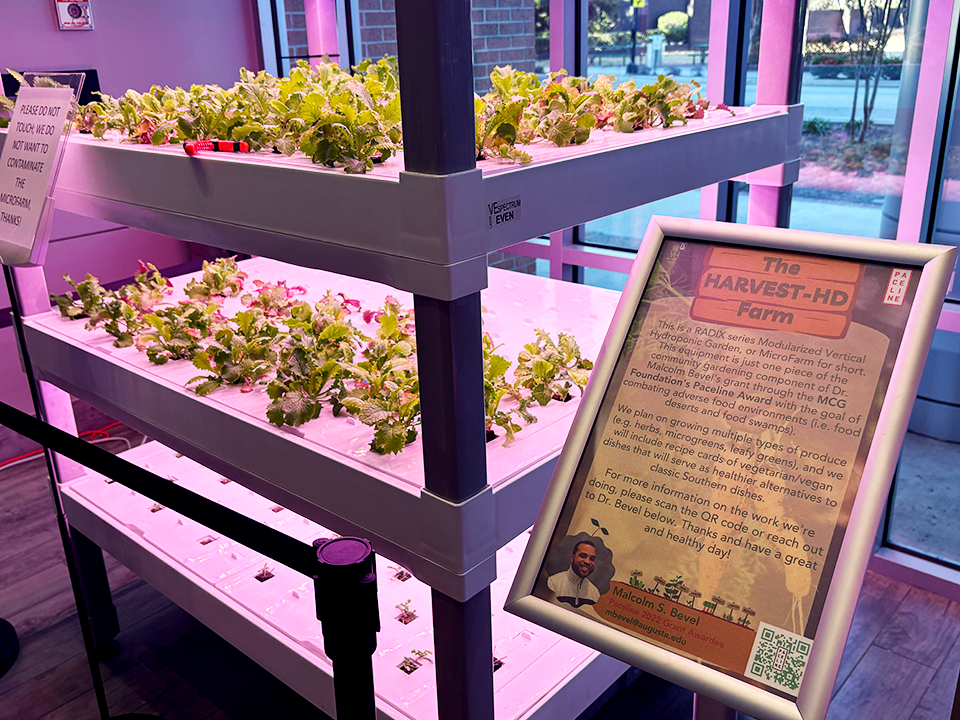
[Hannah Litteer/Augusta University]
Bevel has partnered with Ebony Tree Farms, a local public benefits corporation geared toward creating healthy solutions to food insecurity in the CSRA, to establish micro-farms in the Augusta area, including one located at GCC’s M. Bert Storey Research Building, which Bevel has named the HARVEST-HD Farm, and one at Walton Options for Independent Living.
Ebony Tree Farms provides an array of products and services to promote healthier food options in the area, from selling pesticide-free organic produce grown in their indoor micro-farms to providing advanced agriculture training, supplies and cooking demonstrations to the community. It also partakes in community outreach projects through its nonprofit branch, Ebony Tree Council.
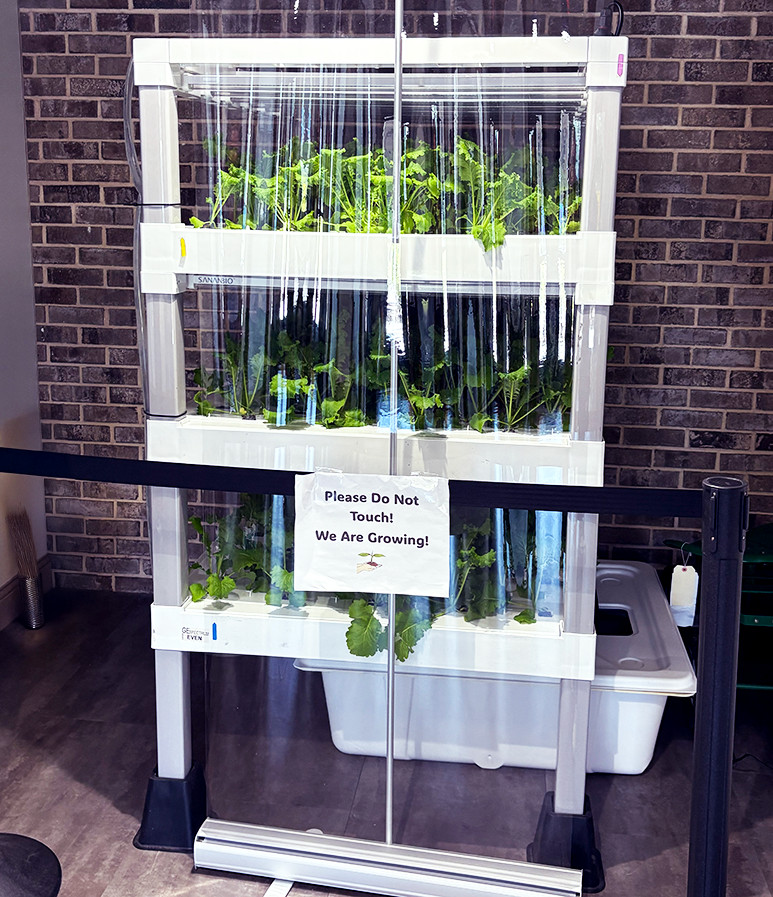
[Hannah Litteer/Augusta University]
Anna and Frederick Griffin, the owners of Ebony Tree Farms, met Bevel the same way Scott did.
“We approached him, and we were like, ‘We understand your research. We understand what you’re doing, and we have the ability to shorten the distance between your research and the equipment,’” Anna said.
So the group joined forces, and the HARVEST-HD micro-farm was born. It’s now almost 2 years old and was funded through the Medical College of Georgia Foundation’s Paceline grant.
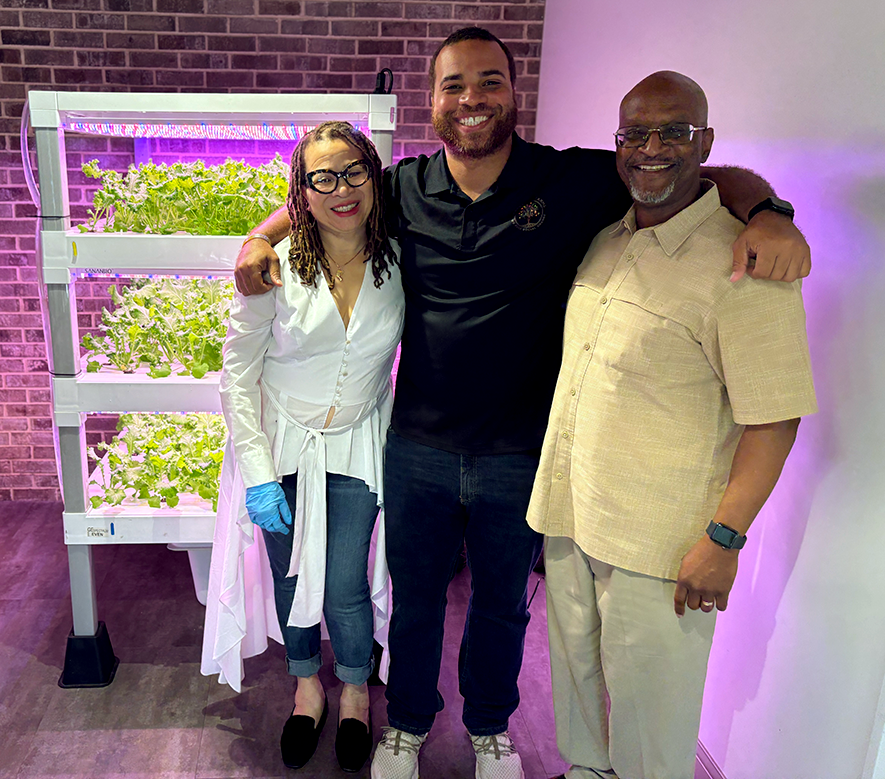
“There’s no pesticides, and there’s no fertilizer. Everything’s 100% organic. We use coconut fiber as our grow medium because it retains moisture better, and it retains nutrients the way the system is designed. The key elements you have to focus on are pH level, electronic conductivity, water temperature and observation of the health of the plants,” said Frederick, the brains behind operating the micro-farms.
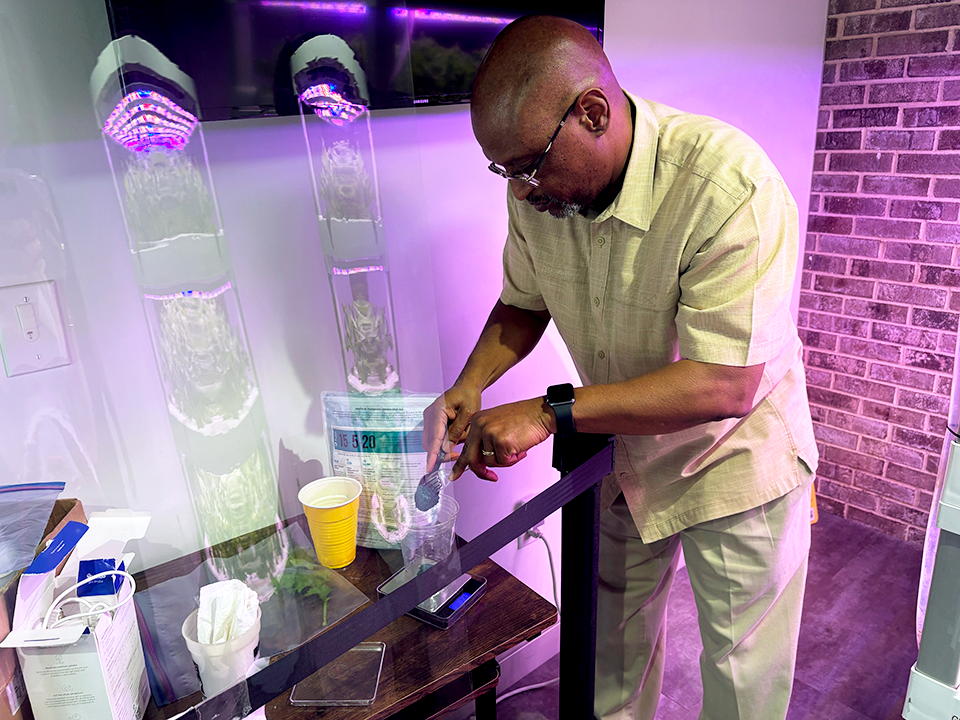
“The produce that comes out of these systems tastes completely different than what you get at the grocery store,” Anna said. “As it relates to Dr. Bevel and his research, our research is also data driven, and our focus is what are the social determinants? How is the elderly now functioning? How are job creations going? Is the community thriving now?”
These constructions allow Bevel and his community partners to grow about 400 to 900 pounds of produce in a year, ranging from mustard greens and basil to kale and butter lettuce and everything in between.

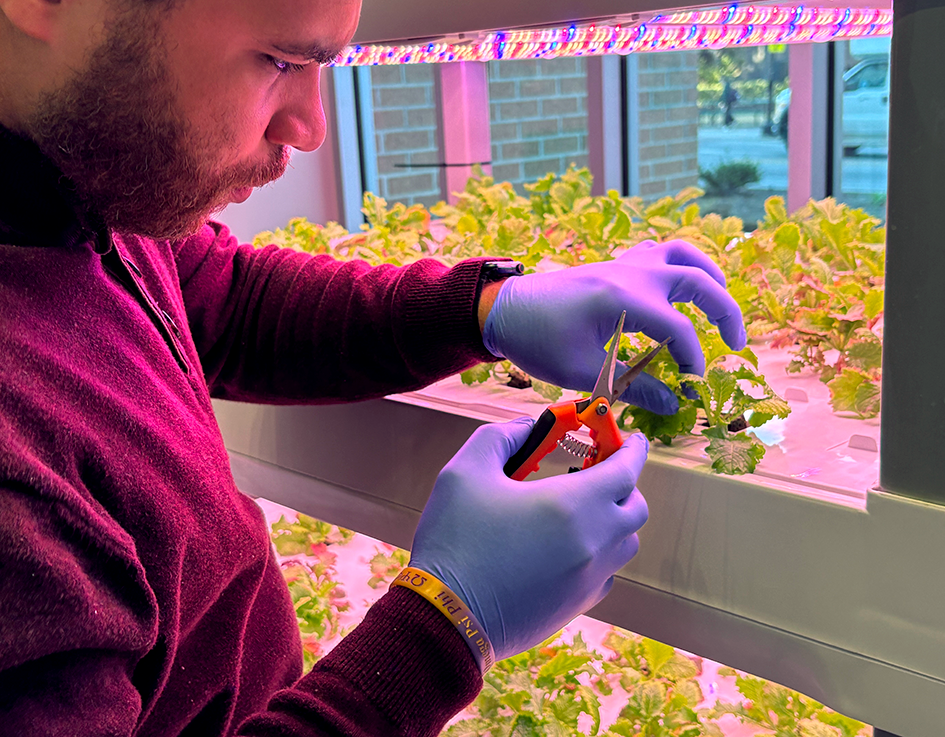
[Hannah Litteer/Augusta University]
“From the time that we first started planting to the one-year anniversary that we’ve had our system, we grew approximately 402 pounds of viable food to eat. We yield approximately 85% of viable produce to consume. It’s a zero-waste system, so then any produce that needs to be scrapped, we use that for composting,” Bevel said.
Because the project is focused so heavily on community outreach, 50% of the produce goes back to Ebony Tree Farms for Anna to do cooking demonstrations for the public.
“Demonstrations we actually had here at the Georgia Cancer Center. So we took kale with cranberries and stewed it down like you would do collards and mustard greens but did it completely vegan,” Bevel said. “We’ve also done basil pesto pasta with the basil that we grew from the micro-farm.”
“That’s Anna’s skill set,” Frederick said. “She’s an amazing chef. She doesn’t like to consider herself a chef, but she’s an amazing chef.”
“I’m a flavorist,” Anna laughed. “Flavor because I would make it taste so good.”
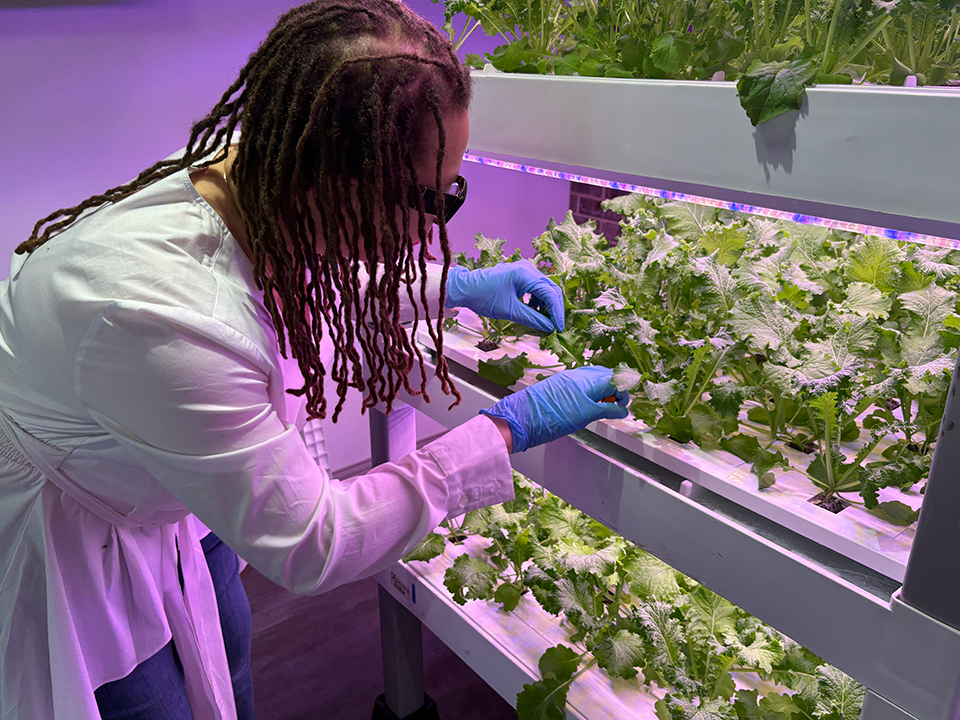
[Hannah Litteer/Augusta University]
The other 50% goes to Kingdom Full Gospel, a local church that organizes a meals program every Wednesday for people experiencing homelessness.
“So every time we have a harvest, as long as we have over 80% yield, then they get at least 50% of the produce that we grow,” Bevel said.
As a family that has been impacted by cancer in more ways than one, the Griffins feel called to help Bevel and GCC in their endeavors to treat and stop the spread of the disease.
“Whatever we can do to support that kind of cancer research, we will. We’re continuing that pathway to research because that’s also very much important to the community as well,” Anna said. “It’s all interconnected, and that nexus point is food.”
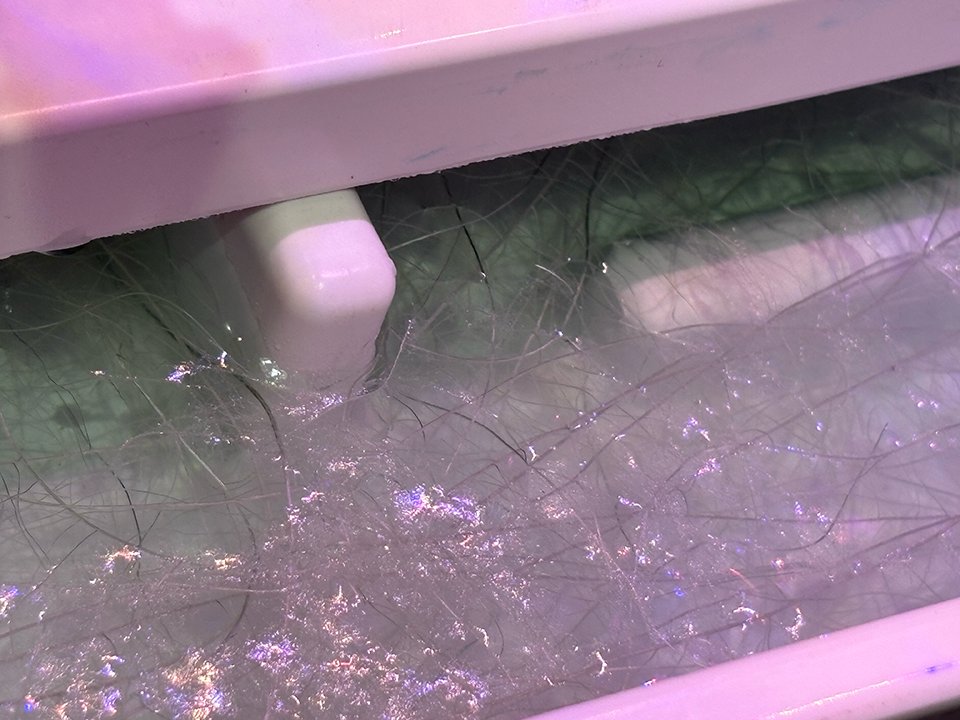
[Hannah Litteer/Augusta University]
The team will also soon be giving out surveys to GCC patients to see how they feel about working on and eating from the micro-farms.
“Right now, it’s just been proof of concept to show people in the community that a system like this works, not only at the Georgia Cancer Center, but at Walton Options as well,” Bevel said. “Ebony Tree Farms has given samples to different organizations; they’ve given samples to the USDA. We even have buy-in from Sens. Ossoff’s and Warnock’s offices.”
“My ultimate goal is to have micro-farms and community gardens throughout the South and Southeast.”
Malcolm Bevel, PhD
What’s next?
The end goal is to keep expanding and trying to change the food culture and environment for the better throughout the region, throughout Georgia, throughout the Southeast, throughout the nation – even globally.
And steps are being taken in those directions.
“Some newer developments are that we have some contacts at the Medical College of Georgia’s Savannah campus, and some of our medical students would like to continue to do research there and do community outreach down there in the coastal area,” Bevel said. “So we’re going to ship some of the micro-farms down there so we can train our students not only how to collect focus group data but also how to maintain the micro-farms down there in the Savannah area.”
He’s also resubmitting for larger federal and state grants to continue his work promoting healthy lifestyle intervention, complete with gardening initiatives. He wants to find local land to house a fleet of indoor micro-farms for study participants to manage and eat from.
“And then ultimately looking at the inflammatory biomarkers, at their weight and fat mass to see how successful healthy eating from micro-farms could really be from a health standpoint,” Bevel said. “But my ultimate goal is to have micro-farms and community gardens throughout the South and Southeast. Food swamps are the most prevalent and the most severe throughout this region, and we’re seeing health disparities at a racial and gender standpoint as it pertains to cancer. So, as long as we can feed the people, I think we’ll be all right.”
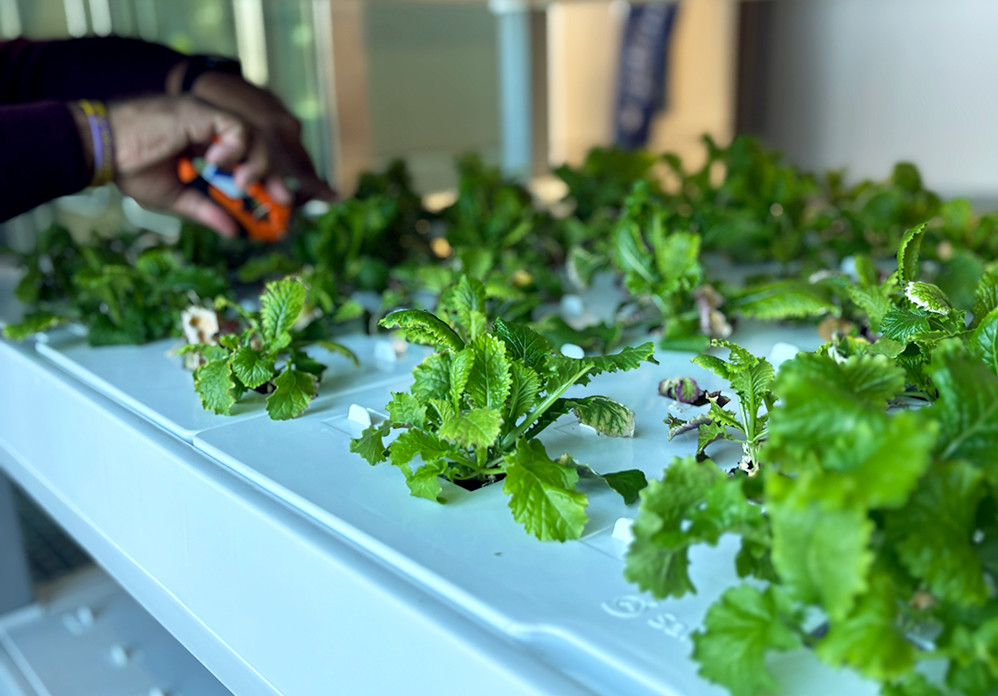
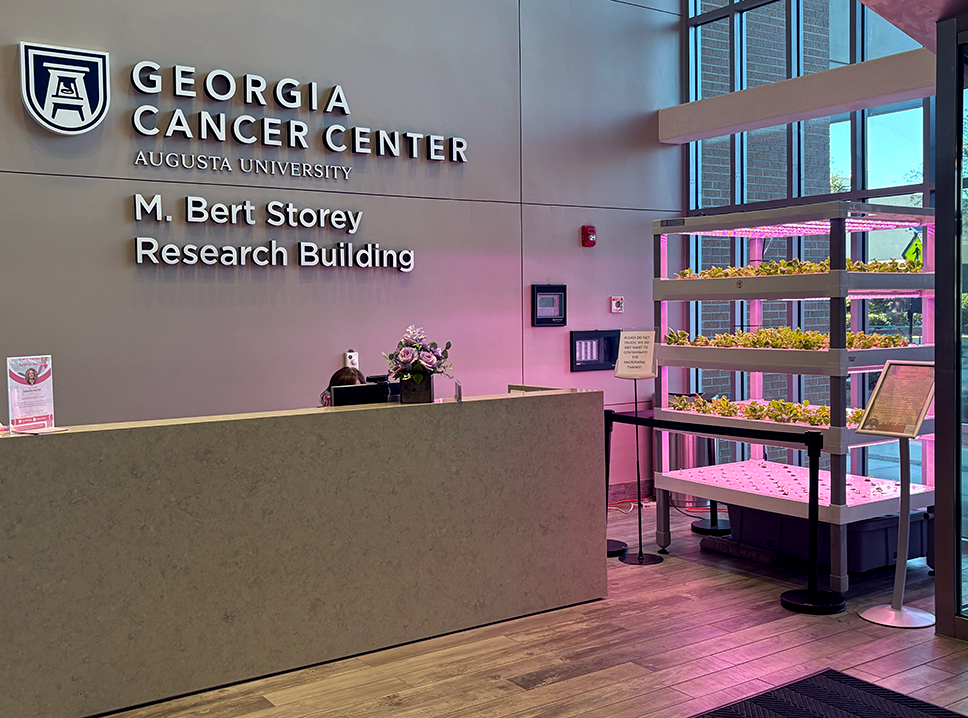
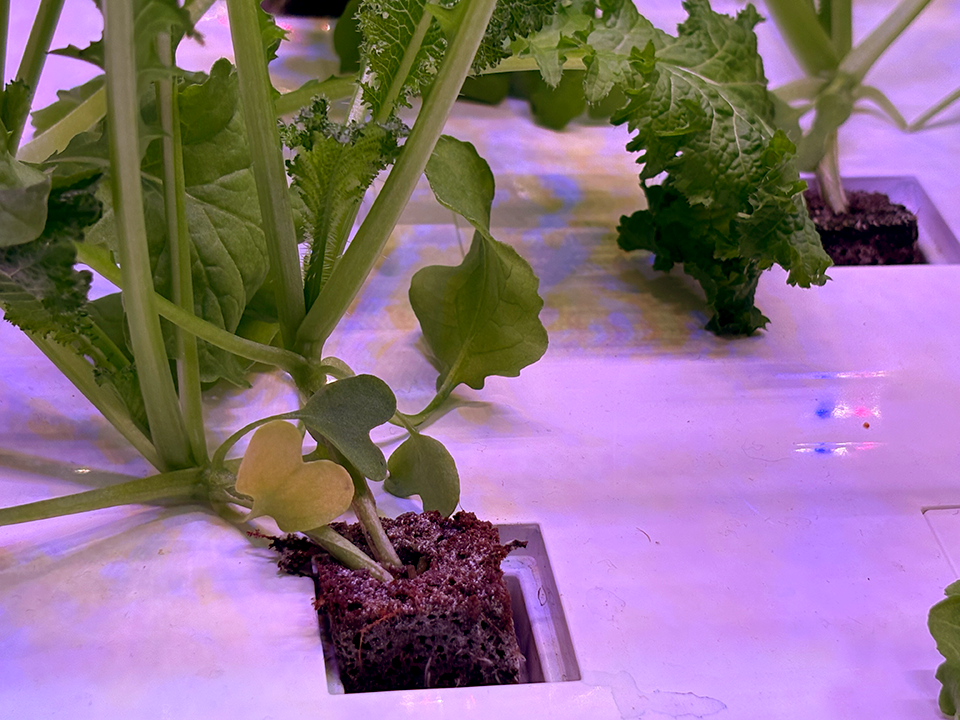

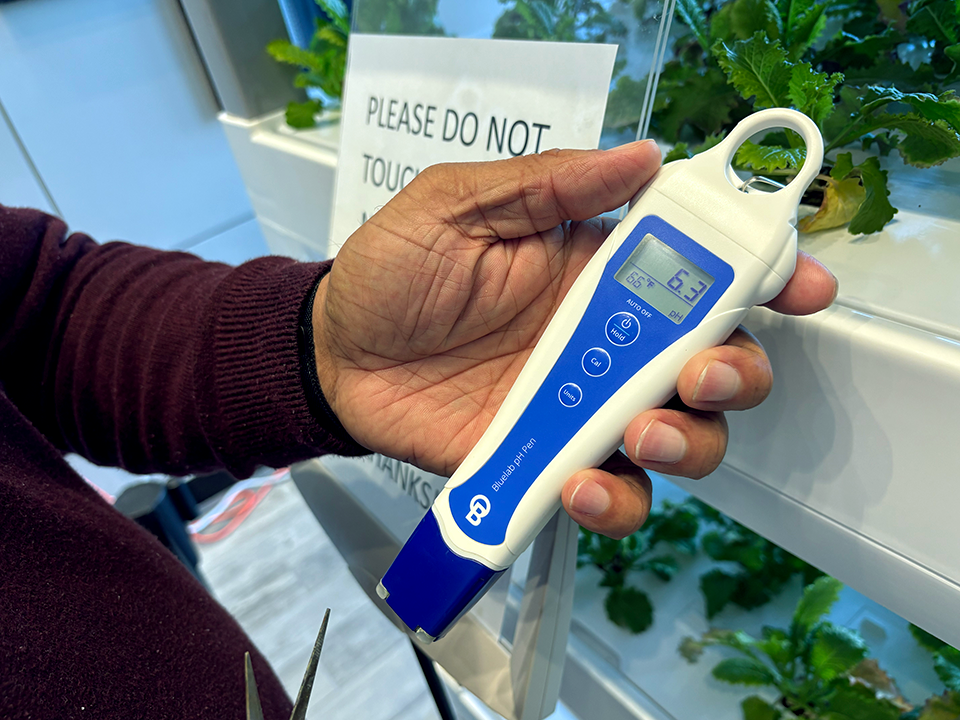
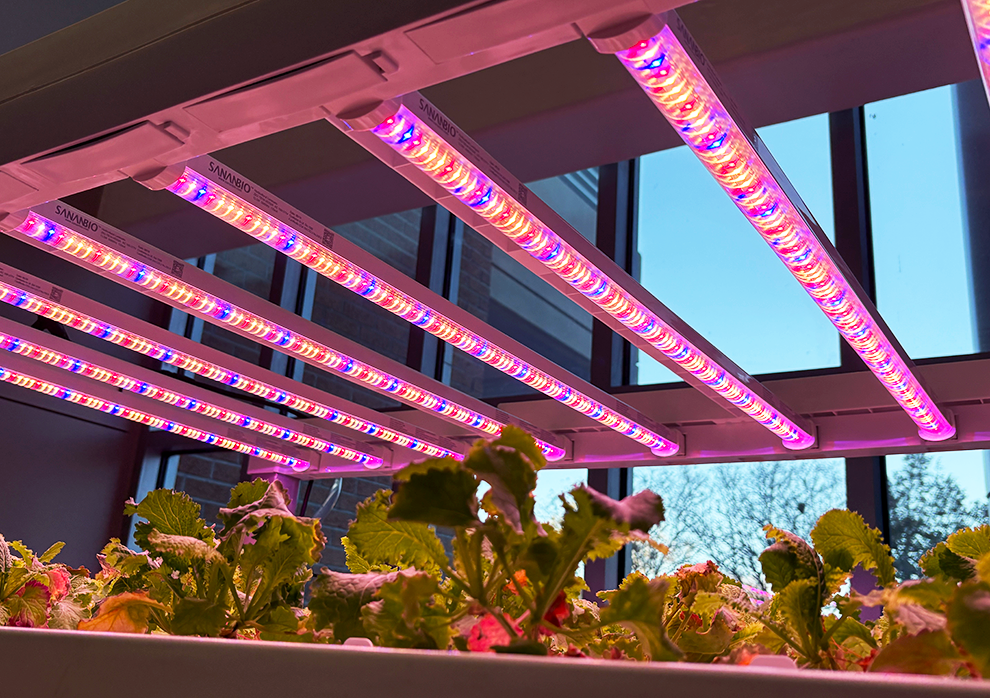
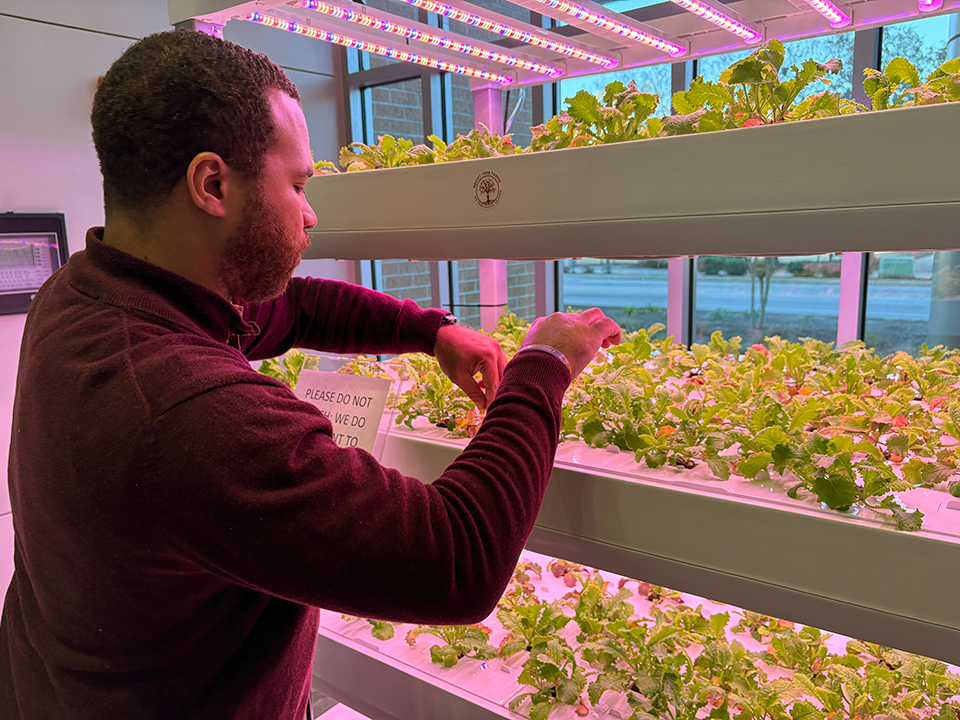
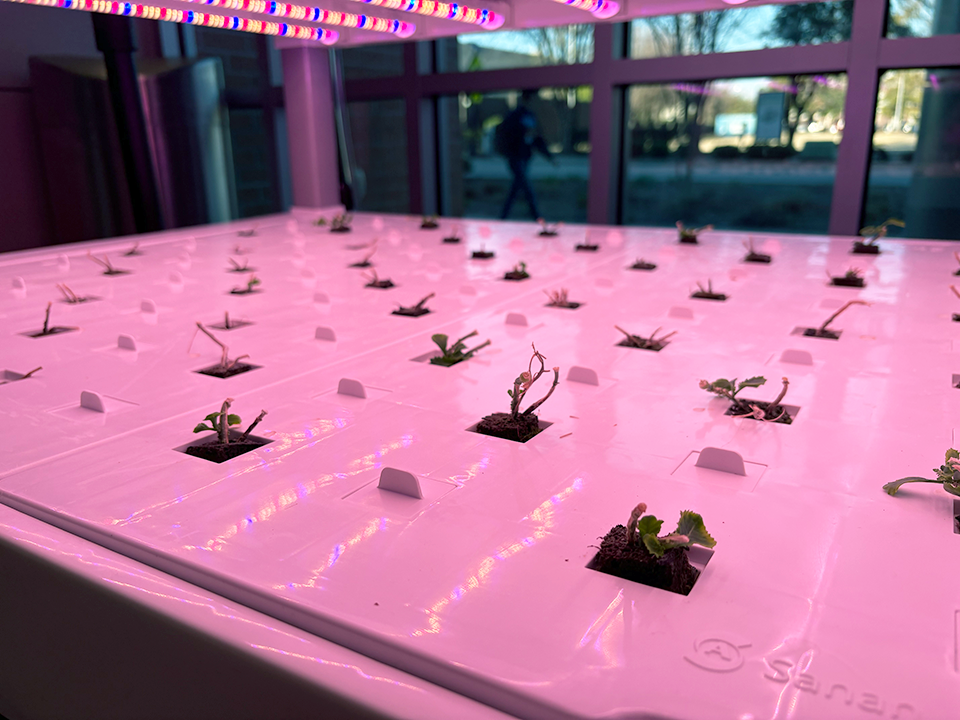
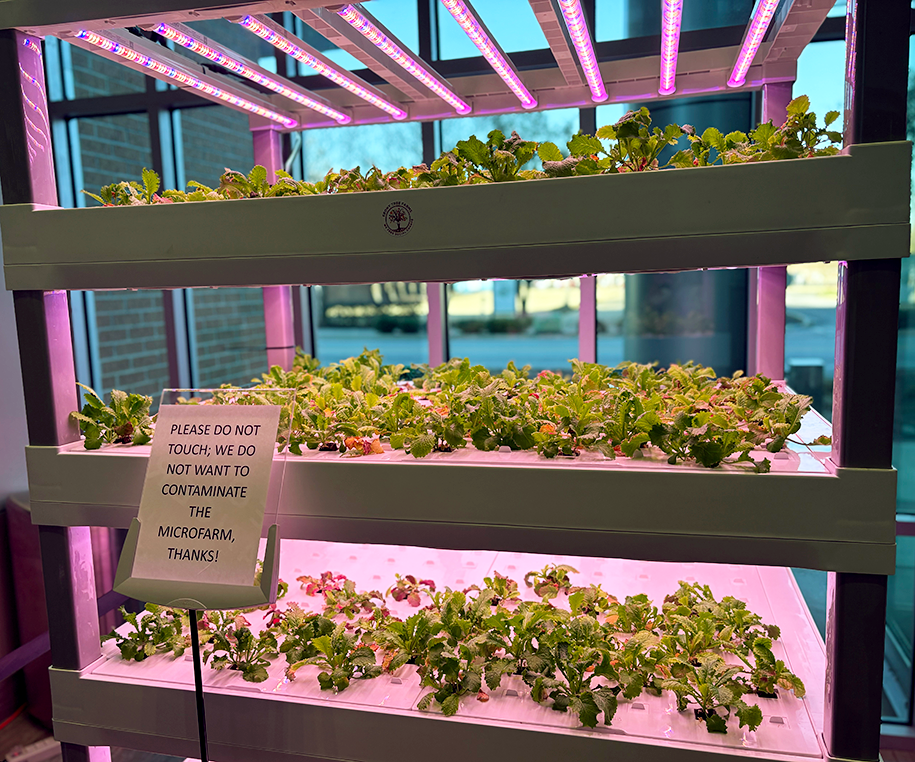
 Augusta University
Augusta University
